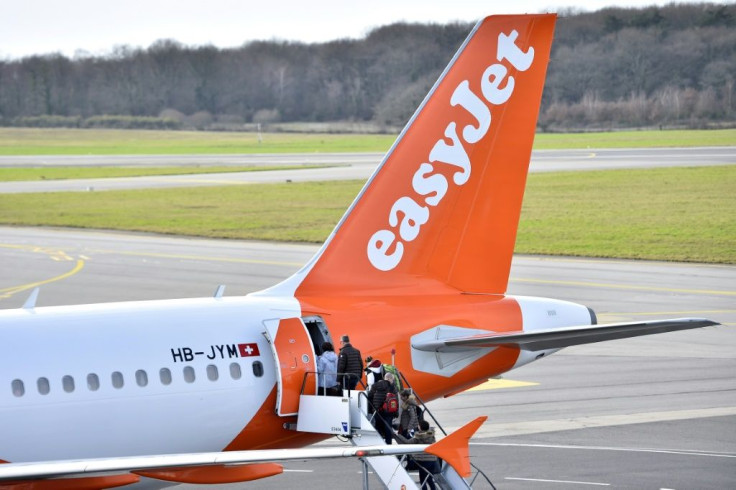EasyJet Plans To Slash 30% Of Workforce, Reduce Fleet, Expects Low Demand Until 2023

KEY POINTS
- EasyJet warned that demand is unlikely to be restored to pre-pandemic levels until 2023
- Unite union said the carrier made "an unnecessarily hasty decision.”
- British government will impose a 14-day quarantine for all arrivals from abroad, beginning June 8
Another British airliner has enacted significant layoffs in response to the collapse of air travel demand due to the covid-19 pandemic.
Budget carrier EasyJet said on Thursday it will slash up to 30% of its workforce, or an estimated 4,500 jobs based on the number of total employees at the beginning of 2020.
Luton-based Easyjet, which has major operations in both Luton and Gatwick (London) airports, also said it will resume flights on June 15 -- initially domestic routes in the U.K. and France. But the carrier – which grounded its entire fleet in March - warned that demand is unlikely to be restored to pre-pandemic levels until 2023.
By the fourth quarter of this year, EasyJet said expects to fly about 30% of capacity. By the end of its fiscal 2021 the airline will have a fleet of about 302 aircraft, or 51 fewer than what was expected prior to the pandemic.
British Airways, Ryanair and Virgin Atlantic have already announced thousands of job cuts.
"To effect the restructure of our business, EasyJet will shortly launch an employee consultation process on proposals to reduce staff numbers by up to 30%, reflecting the reduced fleet, the optimization of our network and bases, improved productivity as well as the promotion of more efficient ways of working," the company said.
EasyJet’s chief executive Johan Lundgren stated: "We realize that these are very difficult times and we are having to consider very difficult decisions which will impact our people, but we want to protect as many jobs as we can for the long-term. We want to ensure that we emerge from the pandemic an even more competitive business than before, so that EasyJet can thrive in the future."
Unions condemned the latest round of job cuts.
Lindsey Olliver, the EasyJet officer for the Unite union, said the carrier made "an unnecessarily hasty decision.”
"The workforce is currently furloughed under the government's job retention scheme and the airline will continue to receive support until at least October,” she said. "It has also received a government-backed loan of £600 million [$738 million] and has committed to expenditure on new aircraft."
The British Airline Pilots' Association, or BALPA, trade union also criticized EasyJet.
“EasyJet staff will be shocked at the scale of this announcement and only [two] days ago staff got a ‘good news’ message from their boss with no mention of job losses, so this is a real kick in the teeth,” said BALPA General Secretary, Brian Strutton. “Those staff have taken pay cuts to keep the airline afloat and this is the treatment they get in return… Given EasyJet is a British company, the U.K. is its strongest market and it has had hundreds of millions [of pounds] in support from the U.K. taxpayer, I can safely say that we will need a lot of convincing that EasyJet needs to make such dramatic cuts. Indeed, EasyJet’s own projections, though on the pessimistic side, point to recovery by 2023, so this is a temporary problem that doesn’t need this ill-considered knee-jerk reaction.”
The U.K. aviation industry received another blow when the British government said it will impose a mandatory 14-day quarantine for all arrivals from abroad, beginning June 8. The travel industry warned this measure will reduce the number of holiday visitors to Britain and make it harder for Britons to travel to other countries.
© Copyright IBTimes 2025. All rights reserved.





















